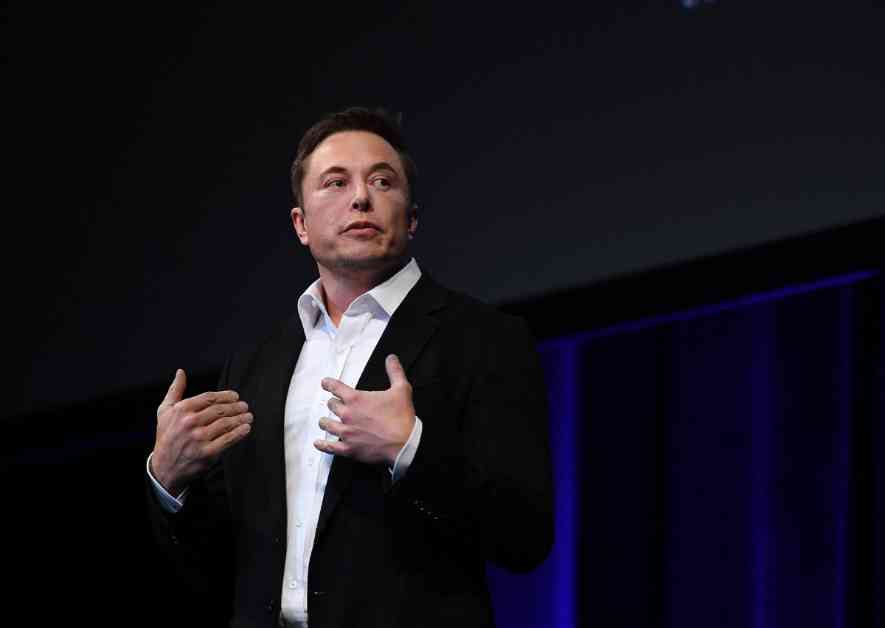Elon Musk’s Threat to Withdraw Bid for OpenAI’s Nonprofit Sparks Legal Battle
In a surprising turn of events, Elon Musk has threatened to withdraw his $97.4 billion bid for OpenAI’s nonprofit organization. The billionaire’s lawyer made this declaration in a court filing on Wednesday, expressing concerns about the potential conversion of the nonprofit into a for-profit entity. According to Musk’s legal team, the bid will only stand if OpenAI’s board of directors agrees to maintain the charity’s original mission and refrain from turning it into a for-profit corporation.
The court filing, submitted to the U.S. District Court for the Northern District of California, underscored the seriousness of Musk’s offer and emphasized the need for fair compensation for the nonprofit’s assets. The document hinted at a possible consortium led by Musk, poised to make a substantial offer to the charity to support its core mission. However, this offer is contingent upon the board’s commitment to upholding the nonprofit’s values and halting the conversion process.
This legal maneuver is the latest development in a complex saga that began earlier in the week. Musk, along with his AI company xAI and a group of investors, had made a bold move to acquire OpenAI’s nonprofit for a staggering $97.4 billion. However, the proposal was swiftly rejected by OpenAI CEO Sam Altman and the company’s board, citing a lack of valuation for the nonprofit and a firm stance against selling the organization.
It is worth noting that Musk, a co-founder of OpenAI, has had a contentious relationship with the company and its leadership. Last year, he filed a lawsuit against OpenAI and Altman, alleging anticompetitive practices and fraud, among other accusations. The ongoing legal battle has further complicated the dynamics between Musk and the organization he helped establish.
OpenAI, initially established as a nonprofit entity, transitioned to a “capped-profit” structure in 2019. As the sole controlling shareholder of the capped-profit OpenAI corporation, the nonprofit holds significant influence over the company’s operations. However, OpenAI is currently undergoing a restructuring process to become a traditional for-profit company, specifically a public benefit corporation. Musk’s lawsuit seeks to block this transition, citing concerns about the company’s commitment to its charitable mission.
In response to Musk’s legal actions, OpenAI’s attorneys have characterized his bid as an attempt to undermine a competitor and a contradiction of his previous stance in court. They argue that Musk’s efforts to gain control of the company through legal maneuvers pose a threat to the organization’s integrity as a charitable trust.
As the legal battle intensifies, the future of OpenAI hangs in the balance. The outcome of Musk’s bid and the board’s response will likely shape the trajectory of the organization and its mission in the years to come. Stay tuned for further updates on this unfolding story.
Expert Analysis on the Implications of Musk’s Threat
To gain deeper insights into the potential ramifications of Elon Musk’s threat to withdraw his bid for OpenAI’s nonprofit, we turned to Kyle Wiggers, a seasoned reporter with a keen interest in artificial intelligence. Based on his expertise, Wiggers highlighted the significance of Musk’s legal maneuvers and the broader implications for the AI industry.
“Elon Musk’s latest actions regarding OpenAI shed light on the intricate relationship between technology, philanthropy, and corporate interests,” Wiggers commented. “As a prominent figure in the tech world, Musk’s stance on the future of OpenAI carries weight and could set a precedent for how organizations navigate the intersection of profit and purpose in the AI sector.”
Wiggers’ expert analysis underscores the complexity of the situation and the potential ripple effects of Musk’s bid withdrawal. As the legal battle unfolds, industry experts and stakeholders will be closely monitoring the developments and their impact on the wider AI landscape.
Personal Reflection: Navigating the Ethics of AI
As a journalist covering tech and AI developments, I find myself grappling with the ethical dilemmas that often accompany advancements in artificial intelligence. The ongoing saga involving Elon Musk, OpenAI, and the push towards for-profit models raises important questions about the intersection of innovation, ethics, and corporate interests.
In my conversations with experts and industry insiders, I have encountered diverse perspectives on the evolving landscape of AI governance and the responsibilities that come with wielding cutting-edge technology. The case of OpenAI serves as a poignant reminder of the delicate balance between progress and ethics in the tech world.
As I continue to follow this story and delve deeper into the implications of Musk’s bid withdrawal, I am reminded of the critical role that journalists play in shedding light on complex issues and fostering meaningful dialogue around the impact of AI on society. Through thoughtful analysis and informed commentary, we can navigate the nuances of this rapidly evolving field and advocate for ethical practices that prioritize the greater good.











